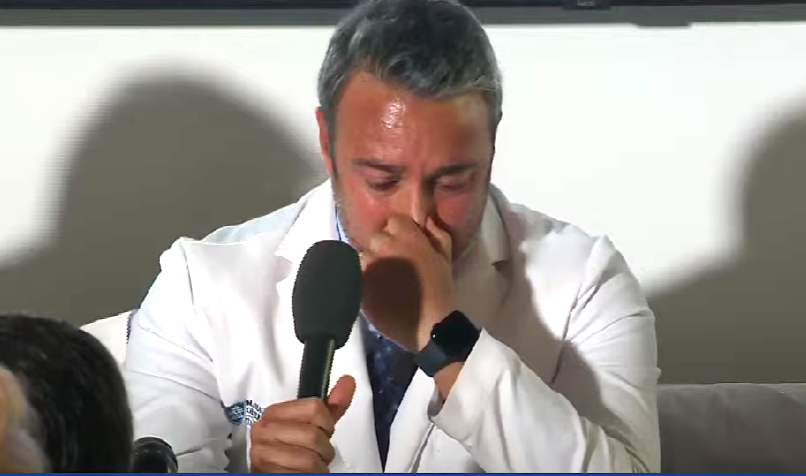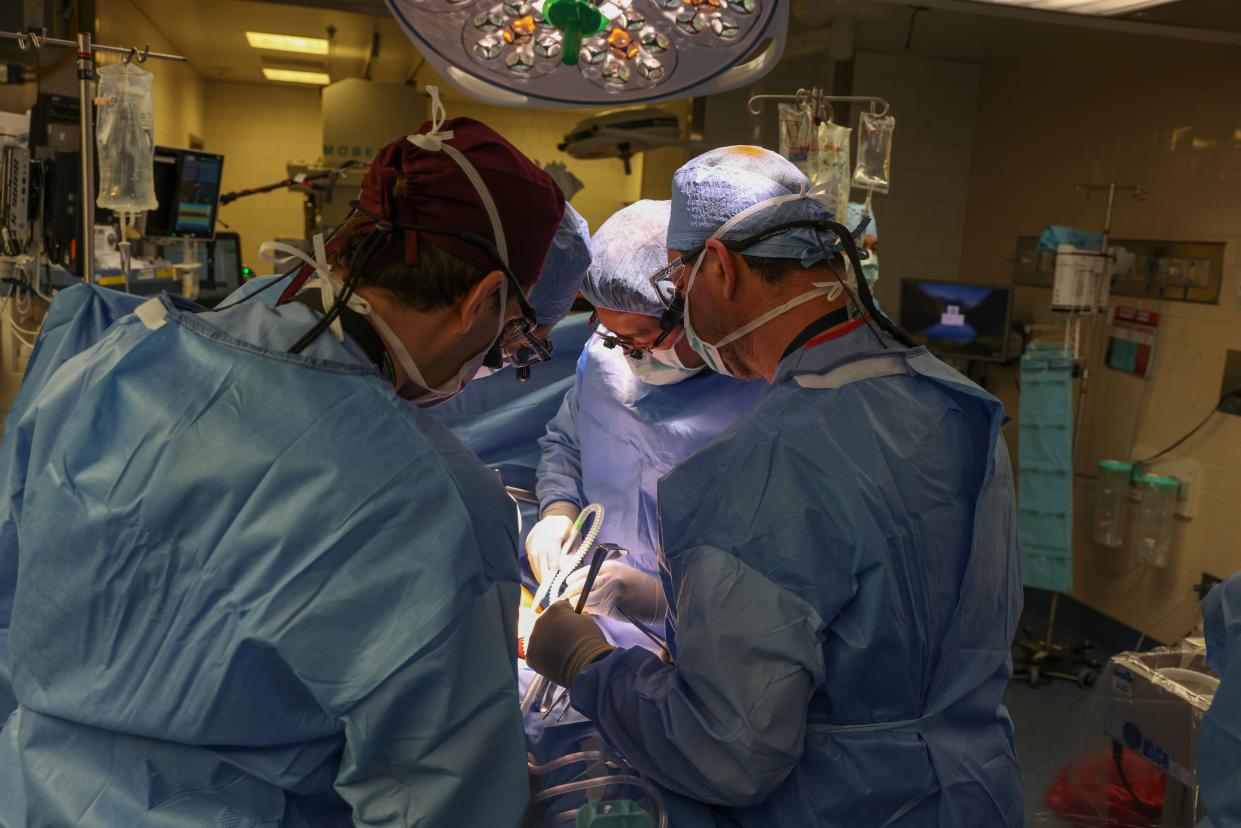Weymouth man receives groundbreaking kidney transplant from a surprising donor at MGH
Massachusetts General Hospital completed the world’s first successful transplant of a genetically edited pig kidney into a 62-year-old Weymouth man living with end-stage kidney disease.
Surgeons from the Mass General Transplant Center conducted the four-hour surgery on Saturday, March 16, and made the news public on Thursday, March 21
The patient, Richard "Rick" Slayman, is recovering and is expected to be discharged soon, according to the hospital.
"The procedure marks a major milestone in the quest to provide more readily available organs to patients," the hospital said in a news release.
Mass General Brigham provides advanced care for a variety of organ and tissue transplants throughout its medical system, the release said.
The procedure was carried out under the leadership of doctors Leonardo V. Riella, medical director for kidney transplantation, Tatsuo Kawai, director of the Legorreta Center for Clinical Transplant Tolerance and Nahel Elias, MD, the interim chief of transplant surgery and surgical director for kidney transplantation.

The pig kidney underwent 69 genomic edits prior to the transplant, the hospital said.
Mass General Brigham transplant milestones include the world’s first successful human organ transplant (a kidney) performed at Brigham and Women’s Hospital in 1954 and the nation’s first penile transplant, which was performed at Mass General Hospital in 2016.
“Mass General Brigham researchers and clinicians are constantly pushing the boundaries of science to transform medicine and solve significant health issues facing our patients in their daily lives,” said Dr. Anne Klibanski, the president and CEO of Mass General Brigham. “Nearly seven decades after the first successful kidney transplant, our clinicians have once again demonstrated our commitment to provide innovative treatments and help ease the burden of disease for our patients and others around the world.”
eGenesis collaborated with hospital on making pig kidney safe for humans
The hospital said the pig kidney was provided by eGenesis of Cambridge from a pig donor that was genetically edited to remove harmful pig genes and add certain human genes to improve its compatibility with humans.
Scientists inactivated porcine endogenous retroviruses in the pig donor to eliminate any risk of infection in humans. According to the news release, Mass General and eGenesis have conducted extensive collaborative research over the past five year. The findings were published in the journal Nature in 2023.
“We are grateful for the courageous contribution of the patient and to the advancement of transplantation science,” said eGenesis CEO Mike Curtis, "This represents a new frontier in medicine and demonstrates the potential of genome engineering to change the lives of millions of patients globally suffering from kidney failure.”

According to the United Network for Organ Sharing, more than 100,000 people in the U.S. are waiting for organ transplants, and 17 people die each day waiting for an organ.
A kidney is the most common organ needed for transplant, and end-stage kidney disease rates are estimated to increase 29-68% in the U.S. by 2030, according to information published in the Journal of the American Society of Nephrology.
Weymouth patient 'a beacon of hope' for others needing transplants
“The real hero today is the patient, Mr. Slayman, as the success of this pioneering surgery, once deemed unimaginable, would not have been possible without his courage and willingness to embark on a journey into uncharted medical territory," said Dr. Joren C. Madsen, director of the hospital's Transplant Center. "As the global medical community celebrates this monumental achievement, Mr. Slayman becomes a beacon of hope for countless individuals suffering from end-stage renal disease and opens a new frontier in organ transplantation."
Positive outcomes: From old friend to kidney donor: Former Quincy city councilor gets 'a new life'
Slayman has been a Transplant Center patient for 11 years.
He has been living with Type 2 diabetes and hypertension for many years and had received a kidney transplant from a dead human donor in December 2018, which was performed at the hospital after being on dialysis for the previous seven years.
The transplanted kidney showed signs of failure around five years later, requiring Slayman to resume dialysis in May 2023, according to the hospital. Since resuming dialysis, he encountered recurrent dialysis vascular access complications requiring visits to the hospital every two weeks for de-clotting and surgical revisions, which impacted his quality of life. The complications are a common problem among dialysis patients, the hospital said.

"I have the highest level of trust in the doctors, nurses and clinical staff who have cared for me." he said in a statement. "When my transplanted kidney began failing in 2023, I again trusted my care team at MGH to meet my goals of not just improving my quality of life but extending it."
He said his nephrologist, Dr. Winfred Williams, and the Transplant Center team suggested the pig kidney transplant and laid out the pros and cons of this procedure.
"I saw it not only as a way to help me, but a way to provide hope for the thousands of people who need a transplant to survive," Slayman said.
The FDA's role in allowing the surgery to proceed
The procedure was performed under a single "compassionate use" FDA Expanded Access Protocol, referred to as which is granted to a single patient or group of patients with serious, life-threatening illnesses or conditions to gain access to experimental treatments or trials when no comparable treatment options or therapies exist, the hospital said in its release.
Slayman also received infusion of novel immunosuppressant drugs.
Neighbor in need: Have a kidney to spare? Plymouth man desperately needs one
Riella led the group of Mass General Transplant Center physicians in applying for FDA approval. which was reviewed by the FDA before its approval in late February.
“Seventy years after the first kidney transplant and six decades following the advent of immunosuppressive medications, we stand on the brink of a monumental breakthrough in transplantation," Riella said.
This article originally appeared on The Patriot Ledger: Weymouth man receives pig kidney at Mass General Hospital
